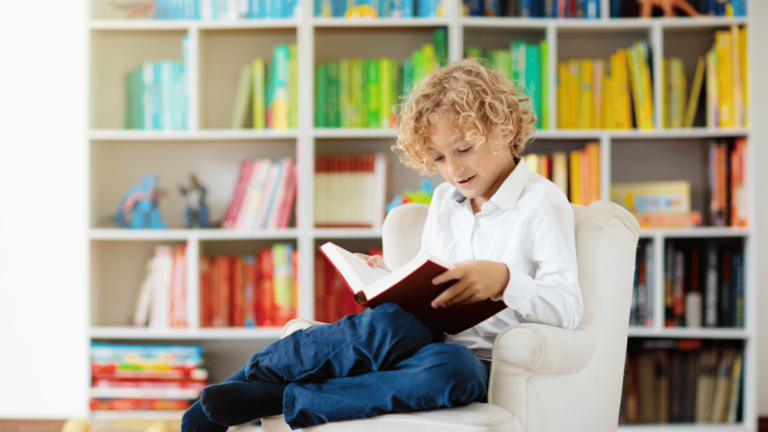The Children’s Book Review answers your questions: Why does my kid want to read the same book over and over?
Why Re-reading the Same Book Over and Over Again is Okay
As parents, we often find ourselves reading the same bedtime story night after night or watching our older children pore over the same graphic novel for the umpteenth time. While this repetition might test our patience and spark worries about stagnating reading skills, it’s important to understand that this behavior is not only normal but can be incredibly beneficial for your child’s development. Here’s why:
- Comfort and Security: For younger children especially, familiar stories provide a sense of stability and predictability. In a world that can often feel overwhelming, these books serve as a comfortable constant.
- Language Acquisition: Repeated exposure to the same text aids in vocabulary expansion and language pattern recognition. Your child is unconsciously absorbing grammar structures, idioms, and new words with each reading.
- Comprehension Skills: With each re-reading, children uncover new layers of the story. They begin to notice subtleties in plot, character development, and themes that they might have missed initially.
- Building Confidence: As children become familiar with a book, they may start to “read” it independently, even if they’re not yet decoding words. This fosters confidence in their budding literacy skills.
- Critical Thinking: Development Familiarity with a story often leads to more questions and predictions, nurturing critical thinking skills.
- Emotional Intelligence: Stories provide a safe space for children to explore various emotions and scenarios, contributing to their emotional intelligence and empathy.
- The Graphic Novel Phenomenon: For older children, a fixation on graphic novels is equally valuable. These books:
- Enhance visual literacy skills
- Support reading comprehension through visual context
- Often tackle complex themes in accessible ways
- Can serve as a bridge to other forms of literature
Remember, whether your child is stuck on Don’t Wake the Dragon or the latest manga series, their repetitive reading is serving a purpose. It’s laying the groundwork for a lifelong love of reading and learning.

As parents, our role is to support this natural process. Continue to offer new books and genres, but don’t worry if your child gravitates back to old favorites. This balance of familiarity and new experiences creates an ideal environment for literacy development.
By understanding and embracing your child’s reading preferences, you’re supporting their cognitive, emotional, and social development in ways that extend far beyond the pages of their favorite books.
*Disclosure: Please note that this post may contain affiliate links that share some commission. Rest assured that these will not affect the cost of any products and services promoted here. Our team always provides their authentic opinion in all content published on this site.



